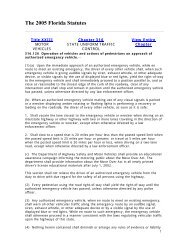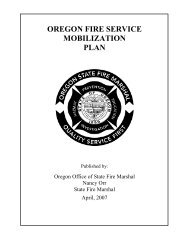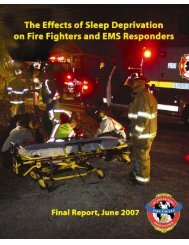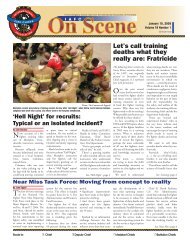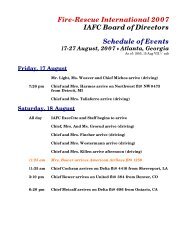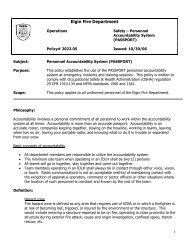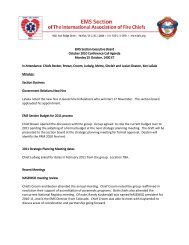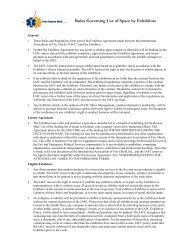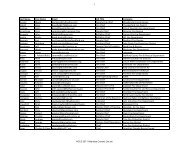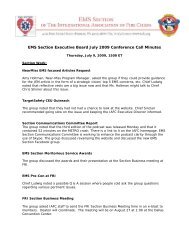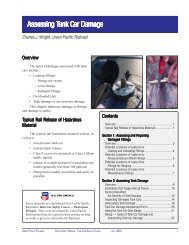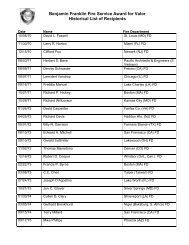DISCIPLINARY ACTION CHECKLIST - IAFC
DISCIPLINARY ACTION CHECKLIST - IAFC
DISCIPLINARY ACTION CHECKLIST - IAFC
Create successful ePaper yourself
Turn your PDF publications into a flip-book with our unique Google optimized e-Paper software.
WHAT IS GARRITY?<br />
The so-called Garrity warnings or Garrity rights arise from a 1967 Supreme<br />
Court case, Garrity v. New Jersey. The United States Supreme Court decided<br />
that a law enforcement officer does not give up his Fifth Amendment Right to be<br />
free from compulsory self-incrimination by becoming a law enforcement officer.<br />
The issuance of a Garrity warning provides a firefighter with use immunity. That<br />
means the firefighter may be compelled to provide statements under threat of<br />
discipline, including discharge, and those statements may not be used in criminal<br />
prosecution against that firefighter.<br />
Caution: If a suspected policy violation raises the potential for criminal<br />
investigation, seek legal advice before undertaking the investigation. Do not<br />
issue a Garrity warning without first consulting the attorney advising the<br />
Department.<br />
Garrity requirements:<br />
• The firefighter must be given an order to answer questions under<br />
threat of disciplinary actions;<br />
• The questions must be specifically, directly and narrowly related to the<br />
firefighter’s duties or fitness for duty; and<br />
• The firefighter must be advised that the answers will not be used<br />
against the firefighter in criminal prosecution.<br />
What is a compelled statement?<br />
The order to answer questions may be oral, written or implied. The best<br />
practice is to have documentation on the issuance of the Garrity warning.<br />
Generally, reports prepared by a firefighter in the regular course of the job<br />
are not compelled statements for purposes of providing use immunity<br />
under Garrity.<br />
Statements given in response to Garrity can still be used for:<br />
• civil litigation against the firefighter,<br />
• disciplinary action against the firefighter,<br />
• disciplinary action against another firefighter,<br />
• criminal prosecution against another person.<br />
14



